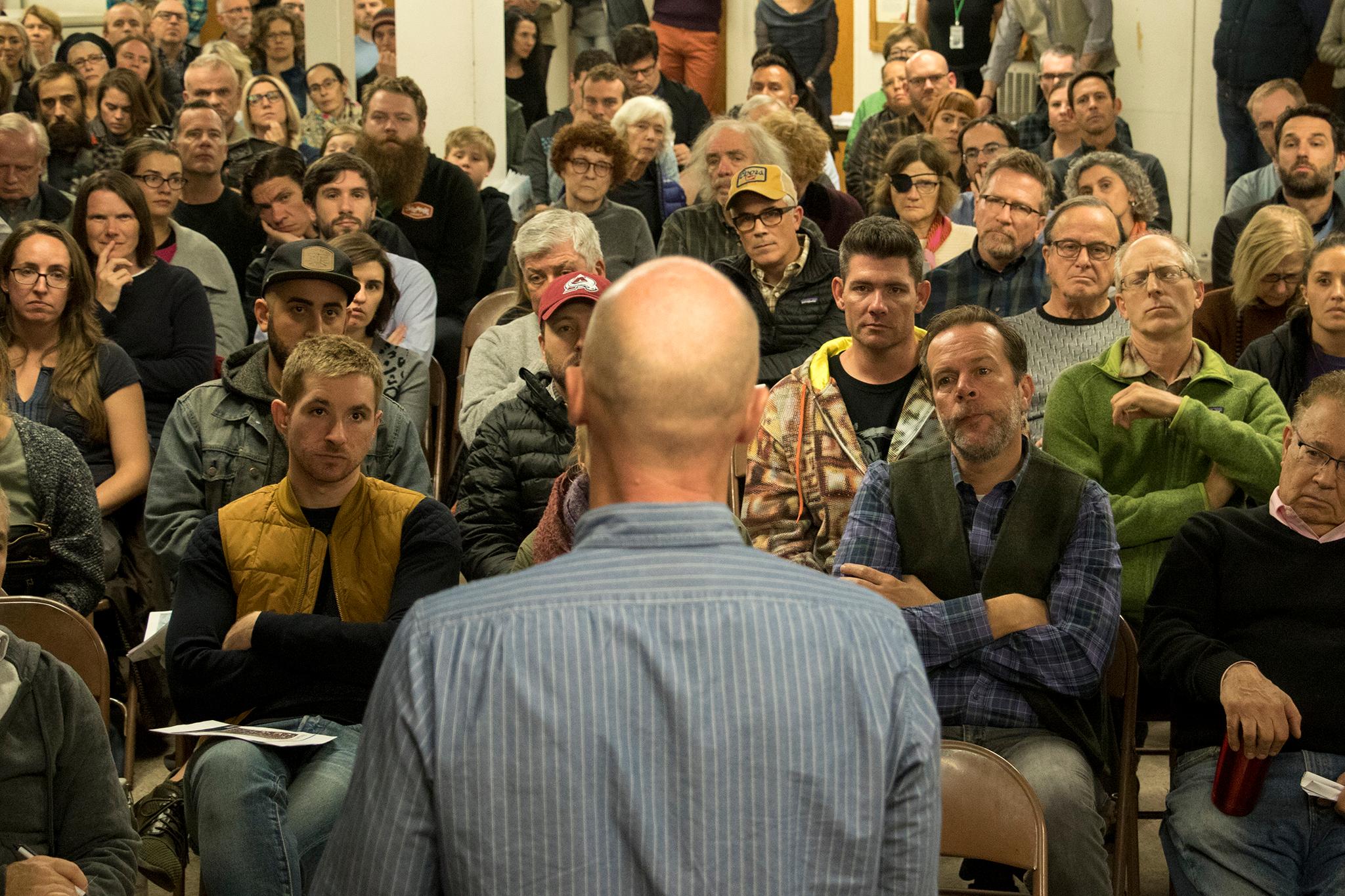An East Colfax neighborhood leader wants the city government to help change a longstanding Denver power structure that skews toward older, whiter, wealthier homeowners.
When the city government needs a sounding board on decisions big and small, it turns to Denver's network of registered neighborhood organizations, local groups that ostensibly speak for their neighbors. But while they speak loudly, they don't always reflect the entire neighborhood. RNOs, as they're called, tend to be more white and well-off than the places they represent, according to several RNO members who spoke with Denverite.
"You can point to neighborhoods that for one reason or another seem to be lacking for diversity or seem to be homogenous, but the real thing that happens when you don't have this diversity is that people are silenced," said Tim Roberts, president of the East Colfax Neighborhood Association. "The folks who are not a part of this -- it's indicative of a lack of representation of marginalized communities."
Roberts and his RNO are floating an idea they hope will diversify civic engagement across the city by incentivizing it. They want to revise the city statute to include a part-time, city-paid liaison for each neighborhood with an RNO "in good standing" and funding for basic supplies and resources. Those are the carrots.
But here's the stick: To benefit from a city staffer's help -- a boon for volunteer groups with high turnover -- the makeup of RNOs would have to mirror the makeup of the areas they represent. According to the draft statute, if an RNO's "socioeconomic diversity" matches the neighborhood's within 15 percent (according to the U.S. Census), then the group is in the clear.
If an RNO polls outside of 15 percent, they'd get "de-listed with the city and lose their official status," the draft states.
RNOs are politically powerful, making their diversity key for a city government that says it values equity.
They can stop neighborhood developments in its tracks, even if the project aligns with citywide goals. Roberts said his neighborhood is 65 percent renters but his RNO is majority homeowners, meaning his group cannot really do justice for the majority of people living there. The government will perpetuate inequality if it doesn't step in, he said.
Brenden Greene recently co-founded the East Colfax Community Collective to give people who aren't white a megaphone they don't have through RNOs, in part because a lot of people don't speak English. Some speak Congolese or Burmese, for example -- languages you don't often hear at RNO or City Council meetings.
"One of the biggest problems by far is language justice," Greene said. "Sometimes the bill for translation is 400 bucks a night."
Greene supports the diversity initiative. He believes the city should help everyone be civically engaged, especially when planning for the neighborhood's next 20 years. Taxpayer-funded translating services is just one idea, he said, but it would go a long way.
The East Colfax Neighborhood Association sent its proposal to RNOs across the city in hopes of galvanizing them around the cause and getting feedback.
Capitol Hill United Neighborhoods was one of them. The longtime organizer of the People's Fair, CHUN has dug itself out of a financial hole over the last couple of years and is now not only solvent but flush with reserves. So president Travis Leiker understands the importance of sound financial footing.
"In practice, yes, we would absolutely love public resources to complement our work to allow us to go out into our community and have a greater representation and precision," Leiker told Denverite, adding that "diversity and inclusivity are absolutely essential to RNOs, including historically marginalized populations based on race but also with respect to renters and those who are experiencing homelessness."
But Leiker was circumspect about endorsing the current draft -- it is still malleable -- without more details about how RNOs will be held accountable, which he called "essential" to any initiative.
Funding RNOs with taxpayer money would require the Denver City Council's blessing. It would also be a departure from at least one of Denver's peer cities.
Seattle, a city that Denver tries to emulate in some ways, recently weakened RNOs because they were powerful but unrepresentative of the city. They worked for some, but not for all.
Denverites elected City Councilwoman Amanda Sawyer on a platform of more neighborhood power, especially when it comes to development. While she said she has not seen the grassroots proposal, she agrees that RNOs need to change so they're not "known for just being older people who have more time on their hands and have more available resources," she said, adding that they should represent "a true cross-section of the community."
Sawyer and some of her colleagues are researching RNO reforms separate from the grassroots proposal, she said.
Roberts believes getting people civically engaged, even with more RNO resources, is hugely difficult. His measure could fail, he admitted. But he doesn't see any reason not to try.
This article was updated to correct the name of a neighborhood organization, which is Capitol Hill United Neighborhoods, not Capitol Hill United Neighbors.











